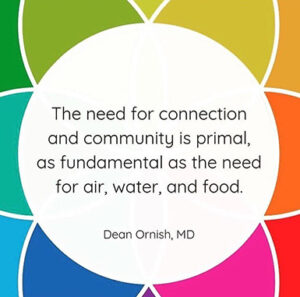
In today’s modern society, it is so easy to forget that we are truly social creatures who need each other. We are hardwired to depend on others to survive. As busy as our world is, it’s helpful to be reminded of the value in having meaningful connections with others outside of one’s immediate family. It takes work to develop and maintain these connections to others. Adoptive families especially can benefit from knowing others who are in the same boat as them. Learn why sharing your unique lives with others in similar circumstances creates healthier, happier families.
Minority
How many children in America are adopted? There are about 1.5 million adopted children in the United States, which is 2% of the population, or 1 out of 50 children. That means 1 out of every 25 U.S. families with children have an adopted child. According to the U.S. Census, about half of these have both biological and adopted children. In other words, if you’re reading this and are a part of an adopted family, then you are in the minority. Why does that matter? Because certain things takes place in your family that are unique to families who have adopted children. Your parenting strategies are less conventional, your struggles are unique, your overall experience is different. Knowing other families who have adopted children can help you to feel less alone, more understood, and will create a camaraderie that can help your family to thrive.
Sense of Belonging
If you are an adopted child, you can gain a sense of belonging that you don’t experience when you are with your non-adoptive peers. Instead of feeling alienated, you can bond with others who have been adopted. And let’s face it, as an adopted child, your experience is unique. Your biological parents could not care for you safely and along comes a new family, one you probably never knew, who decide to become your new parents. You have a loss that being around others like you can help you to accept and work through your sorrow. And then there’s that trust thing. If your original family couldn’t keep you safe, you learn not to trust other adults, and people in general. Learning to trust and even love your new family doesn’t come easy. When you look around at others who are with their birth parents, you end up feeling like you don’t fit in. You wonder what is wrong with you. But if you have just 1 friend who has also been adopted, and you talk about all this normal adoption stuff, you can feel less alone and learn to give yourself time and compassion in your journey.
 Normalize
Normalize
As parents, we are around other parents all the time: at school, on the sports fields, and on social media. It is easy to feel alienated around non-adoptive families, as they deal with very different issues. Imagine, however, you meet an adoptive mom at a retreat, a support group, at your place of worship, or a conference and you start to share stories. This other mom’s experience is surprisingly similar to your own. Some of your feelings about raising your adopted children can be messy and even ugly. Up till now, you have wondered what is wrong with you for even having these feelings. And poof your new friend says she too feels hopeless and alone sometimes and just hearing that makes you take a deep breathe and feel much better. She normalized your feelings, your unique adoption experience. Once this happens you can use that freed up energy to make some hard but real changes at home that previously you felt stuck about. Maybe this other Mom shares the name of her child’s fabulous adoption-competent therapist with you. Maybe your kids end up becoming friends and you get to create a new normal. Maybe you share a book with your friend that enlightens her about what is really going on behind her son’s tantrums. The possibilities are endless.
Physical and Mental Health
Finally having real connections with other adoptive families is necessary and so good for your physical and mental health. Study after study tell us that the connection between mental and physical health is intertwined. That if you walk around in a perpetual state of stress, your body will suffer. Long-term outcomes for children in the child welfare system who have sustained early chronic trauma go on to develop a myriad of serious mental and physical health problems. It’s real. Remember we are social creatures. We need to connect. We need to be seen. We need to be understood. We need to share our lives with others who are experiencing what we are experience. The benefits to your overall well-being are endless. Read the next article in this Newsletter to find ways to actually meet and connect with other adoptive families. The time has come!





